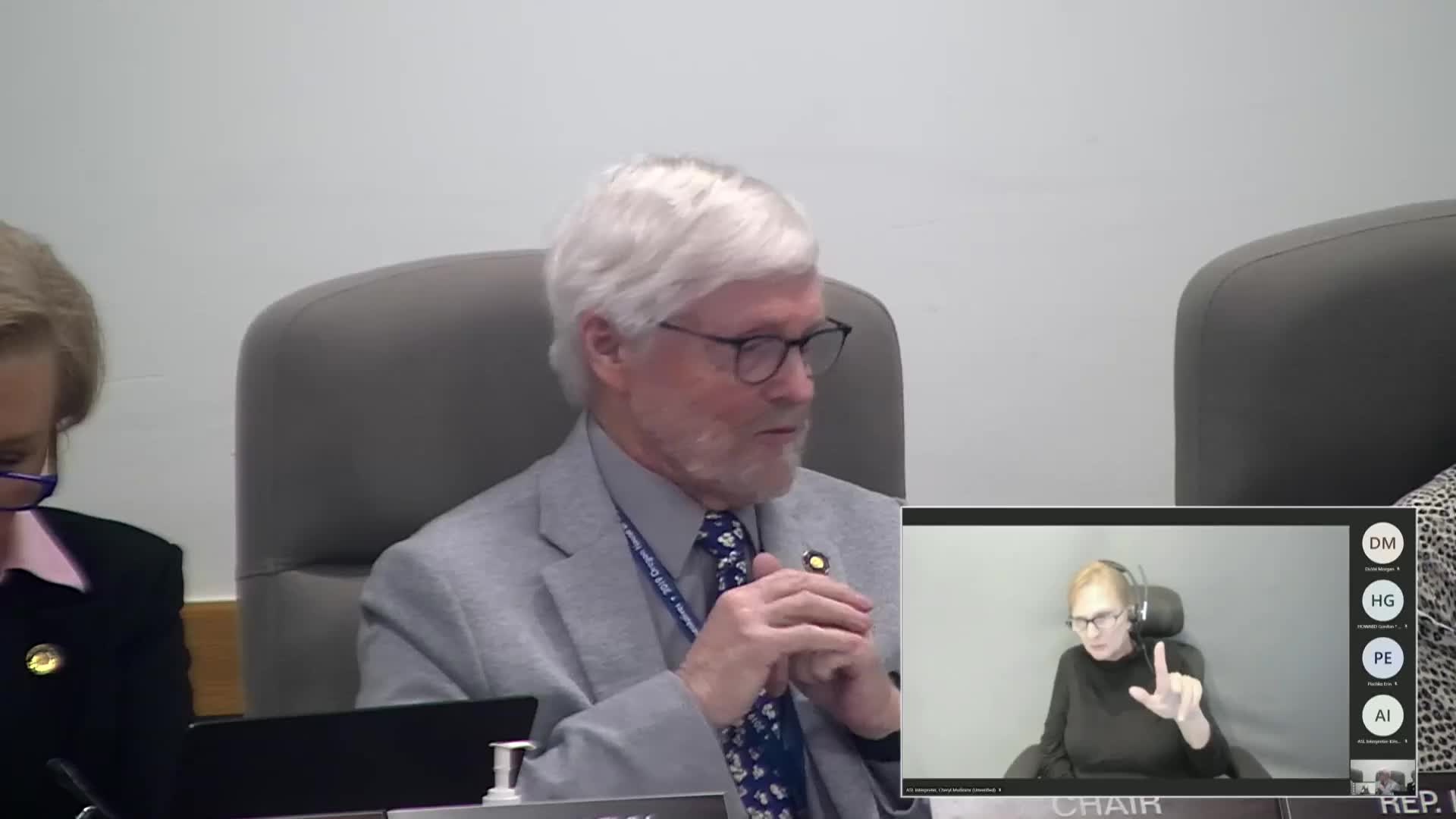Landscape contractors back rebate for battery leaf blowers, cite high upfront costs and charging challenges
Get AI-powered insights, summaries, and transcripts
Subscribe
Summary
Landscape contractors told the House Climate, Energy and Environment Committee on March 18 that commercial battery leaf blowers can reduce noise and emissions but require large upfront investments and infrastructure changes; they supported HB 2067 to create a Department of Energy rebate program to help firms transition.
Representatives of the Oregon Landscape Contractors Association told the House Climate, Energy and Environment Committee on March 18 that battery‑powered leaf blowers can reduce noise and emissions but require significant upfront investment and operational changes for commercial crews; they urged passage of House Bill 2067 to create a rebate program to accelerate adoption.
Joe Poulter, legislative committee chair for the association, and Bill Cross outlined industry experience: battery technology for small handheld equipment (string trimmers, edgers, shears) has recently reached parity with two‑stroke gas equipment for many applications, and crews can transition with modest increased upfront cost and future fuel and maintenance savings. Battery leaf blowers present a larger challenge because run time and power needs vary widely through the season. Witnesses estimated outfitting a two‑person maintenance crew with commercial battery leaf blowers and sufficient batteries to sustain a full workday would cost roughly $6,000–$12,000 compared with $800–$1,000 for gas equipment; high‑capacity batteries can cost $1,300 each and deliver about 45–60 minutes at full power.
Additional operational hurdles cited included secure storage (higher theft risk if batteries are left on open trailers), weather and temperature limits for charging batteries, elevated facility electrical requirements (additional circuits or panel upgrades), and the need for insulated, heated storage or Connex charging boxes in cold climates to protect battery life. Industry witnesses proposed options such as trailer‑mounted battery banks, solar‑topped trailers for daytime trickle charging, and vehicle‑mounted charging; they noted fleets are testing electric trucks but raised concerns about drawing sustained high DC charging from vehicle batteries while towing trailers.
The bill’s dash‑1 amendment would allow the Oregon Department of Energy to establish eligibility criteria for rebates and includes a five‑year sunset, plus an annual reporting requirement to the legislature. Sponsors said a rebate approach is preferable to a tax credit because rebate funds can jumpstart a market without creating an open‑ended long‑term tax expenditure. Witnesses told the committee that firms in the landscaping and contractor sectors — including both large and small operators — face narrow profit margins and that an initial public rebate would accelerate adoption while the technology matures and prices fall.
No committee vote on HB 2067 was recorded on March 18. Committee members asked about program design, potential funding levels and whether vehicle‑based charging could help. Witnesses said the bill did not include a specific appropriation; rulemaking and program design at the department would set eligibility and prioritization criteria.
